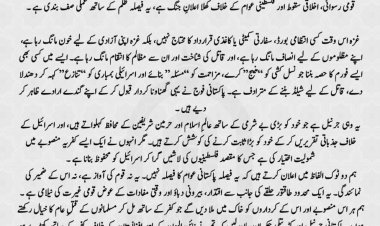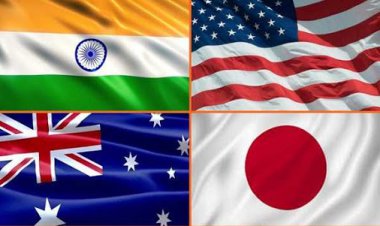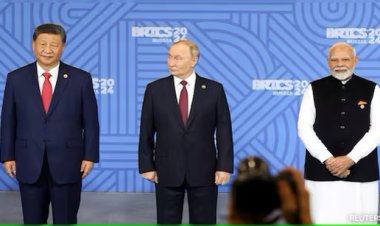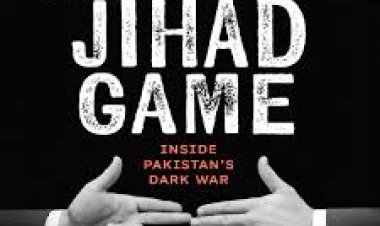Usanas Webinar Coverage | US withdrawal from Afghanistan may mark beginning of new great game
https://economictimes.indiatimes.com/news/defence/us-withdrawal-from-afghanistan-may-mark-beginning-of-new-great-game/articleshow/82513084.cms
American withdrawal from Afghanistan will bring the Taliban back and this may mark the beginning of a possible “new great game” where there are non-state actors and state actors. American withdrawal has effectively opened up space for states like Pakistan, Turkey, Russia and China.
This was a key subject of discussion at an event titled "100 Days: Assessing Biden's Middle East and South Asia Policy" organized last week. speaker for the event was Dr Michael Rubin, former Pentagon official, currently resident scholar at American Enterprise Institute and author “Into the Shadows Radical Vigilantes in Khatami's Iran” and “Dancing with the Devil: The Perils of Engaging Rogue Regime.”
The discussion was organized by Usanas Foundation and hosted by Abhinav Pandya, CEO of the Usanas Foundation, Udaipur based think tank dealing with security & foreign policy matters.
Rubin highlighted that all of Afghanistan’s neighboring states are likely to support their own proxy militias to create buffers, much like historical dynamics in the past. According to his assessment, Afghanistan is likely to be run over by various non-state actors and other terrorist organizations and may look to rebase themselves in other countries in the region.
Commenting on the Afghan peace process, Dr Rubin highlighted that India should have been involved in the from the very beginning, rather than “simply leaving a mess and expecting India to fill the vacuum.”
Rubin also referred to Washington’s major concern vis-à-vis Pakistan being the complete collapse of the country given its “loose nukes” problem. According to him, although Washington is “simply lucky” that it has not had to deal with this problem yet, but considers it naïve to assume that it will never arise. According to him, the possibility of a nuclear fallout remains and that Washington must priorities finding a solution for this ‘dirty-bomb’ problem.
A series of questions were posed by Pandya to Dr. Rubin concerning the current and possible future trajectories of Biden administration’s foreign policy. On the question of whether the current administration is returning towards Obama era policies vis-à-vis Iran, at the expense of the Gulf States—he responded in the affirmative. However, he pointed out that although the current administration is projecting that it is better at handling relations with key players such Saudi Arabia, behind the scenes it has failed to come to a solution over the Iran problem. He highlighted that if the deal with Iran is not ratified as a treaty, it will cause serious reputational damage to the United States and could potentially lead to pivotal middle eastern stated developing their own nuclear arsenal.
According to Rubin, earlier any American would call UAE and Saudi Arabia Israel as US allies in the region, but this is no longer the case. Now Israel, Bahrain and Morocco are likely to be key players, especially since the former has great support within the Congress and among the domestic public.
Given the bipolarization of world politics and Chinese presence in West Asia, Pandya asked Rubin on whether U.S. military disengagement is likely. His reply was that the ‘Pivot to Asia’ is being interpreted by many of the Gulf states as a ‘Pivot away from us.’ However, they look at this as the U.S. necessity to make accommodations with other powers, which does not necessarily mean that they will tie themselves to China the way they do with the United States.
Contrasting the current administration approach with the past Trump administration, he sees the current administration’s more relaxed approach towards Iran as problematic. Commenting on the Iran-China closeness, he pointed out that the Chinese only formalized the deal once Trump was out of office and saw that there would be “con consequences” of the same. According to him, the increasing Chinese presence in Iran is a cause of concern for India.
Highlighting the adverse role of Turkey in the changing balance of power equations in West Asia, Rubin said that “Turkey in the 21st Century is what with Saudi Arabia was in the 20th Century.”

















